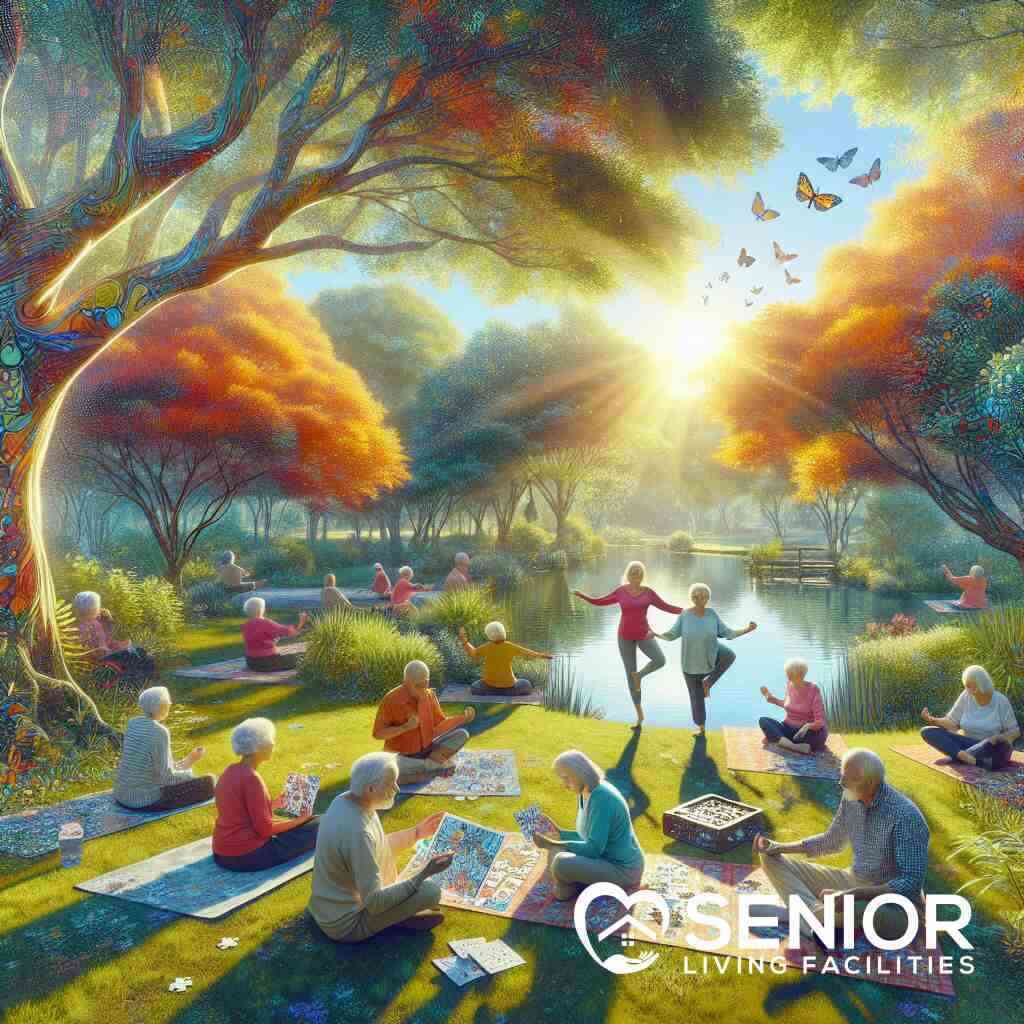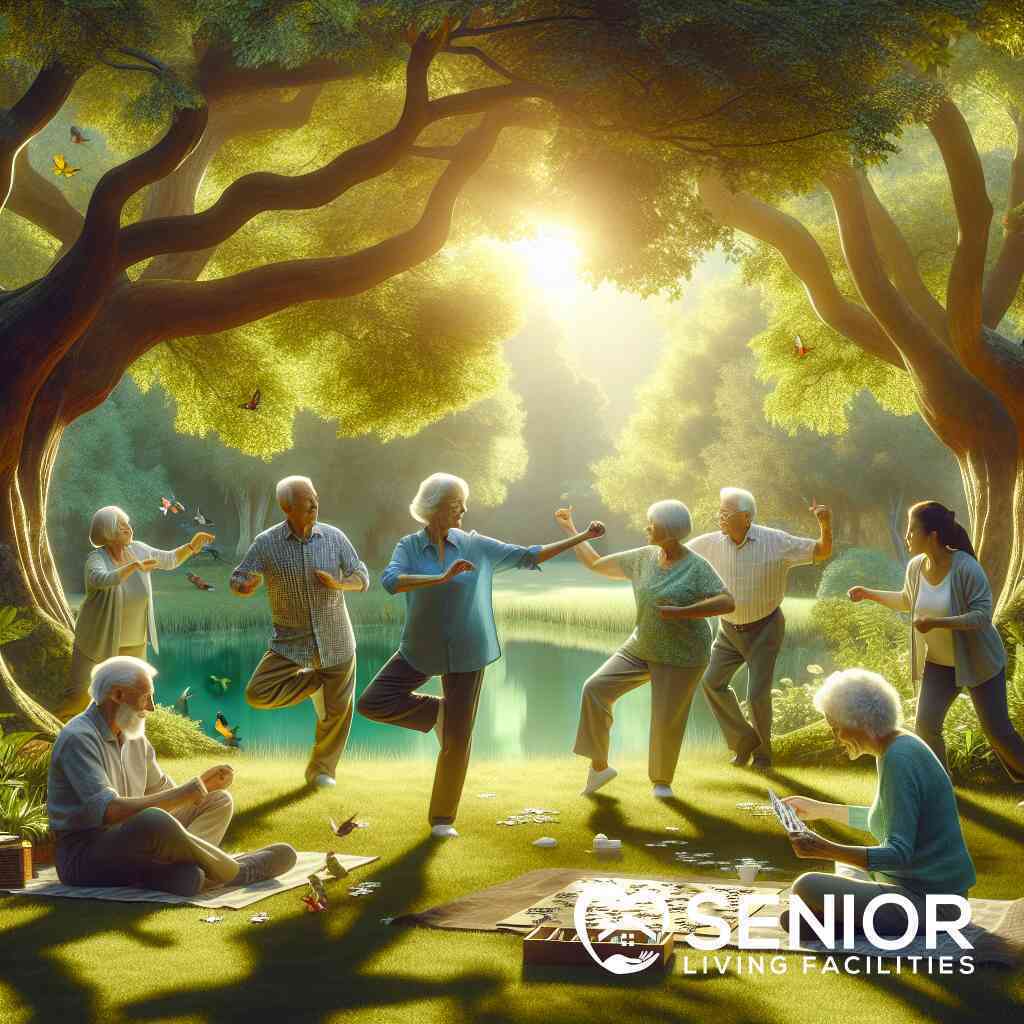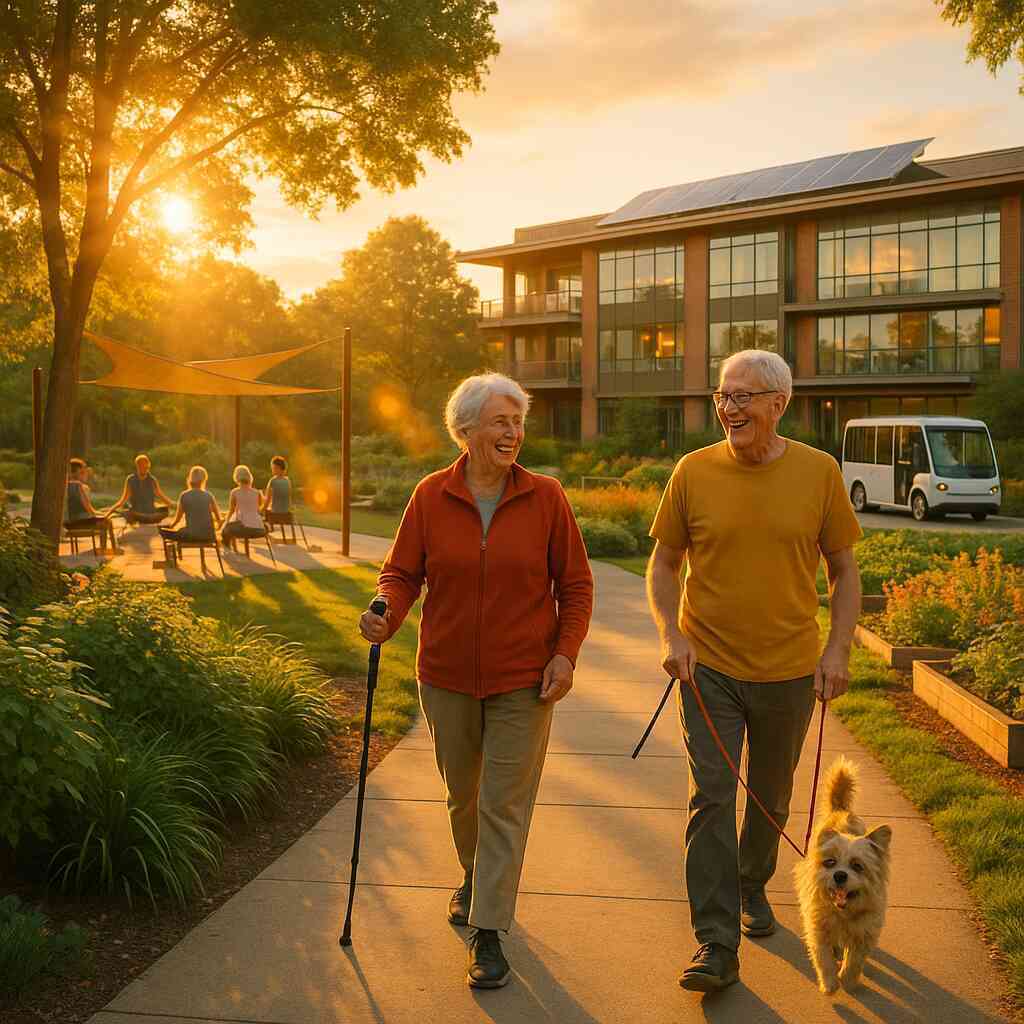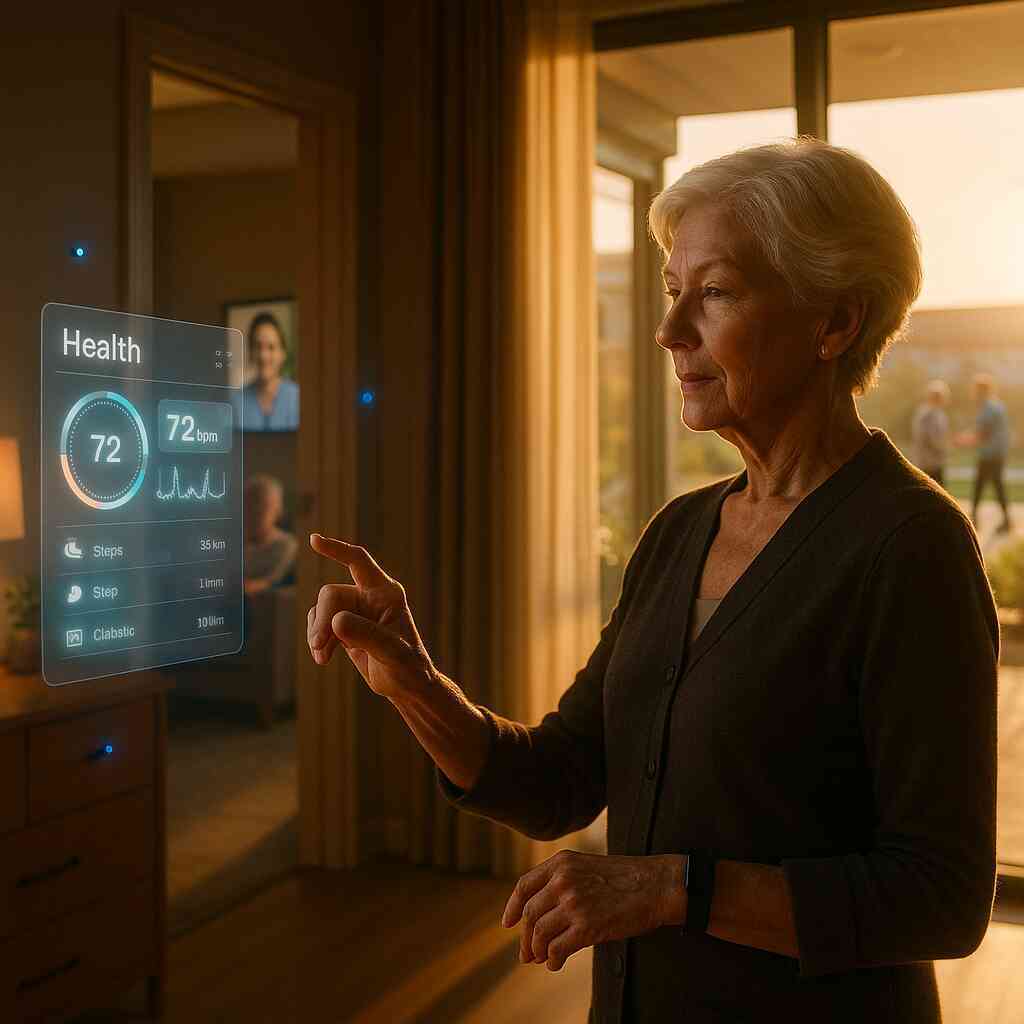
Ultimate Guide to Understanding Cognitive Wellness in Seniors
July 11, 2025
Journey Into Senior Cognitive Wellness
The Evolving Brain in Senior Years
As we journey through life, our brains naturally undergo various physiological changes. For seniors, understanding these changes is crucial to maintaining cognitive health. The aging process may be associated with some cognitive decline, but it is not inevitable for every senior. It’s important to nurture cognitive wellness by engaging in activities that support mental agility. Age-related changes can influence cognitive functions such as memory, attention, and problem-solving skills, and awareness of these changes empowers seniors to pursue healthy brain aging strategies.
Dispelling Myths About Aging and Cognition
There are a plethora of myths surrounding the aging brain. One common misconception is that cognitive decline is an unavoidable part of aging. In reality, many seniors maintain sharp mental acuity through lifestyle choices and cognitive engagement. Cognitive health for older adults can be preserved with proactive measures such as engaging in lifelong learning and interactive activities. Dispelling these myths fosters a positive approach towards aging, encouraging seniors to actively participate in mental fitness and brain health strategies rather than resigning to fate.
Understanding the Importance of Brain Health in Seniors
The foundation of a fulfilling life in senior living facilities is often anchored in strong cognitive health. Understanding the importance of cognitive wellness is essential for seniors to navigate and thrive in their chosen living communities. Cognitive decline prevention is not merely about staving off conditions like dementia, but also about enhancing the quality of life through active engagement in brain-stimulating activities. In vibrant senior communities, mental fitness for the elderly is prioritized, promoting not just longer, but more fulfilling lives. Building resilient cognitive functions through holistic brain wellness strategies enriches both individual lives and the broader community atmosphere.
Foundations of Cognitive Health
Neurological Wellness Fundamentals
Understanding the bedrock of neurological wellness in seniors involves recognizing the brain’s complex structures and functions. Each part of the brain has a specific role, interacting intricately to maintain overall cognitive health. As seniors age, neurological wellness can be influenced by various factors including lifestyle choices, genetics, and social environments. It’s vital to prioritize brain health strategies that cater to these aspects, which can significantly impact senior life quality. By understanding the fundamentals of brain health, seniors can take proactive steps to support and preserve their cognitive abilities well into their later years.
Healthy aging often hinges on maintaining neurological integrity, underscoring the need for activities supporting mental agility. Nutrition, physical exercise, and mental stimulation play crucial roles in sustaining a healthy brain. By incorporating diverse activities and a brain-boosting diet, seniors can support robust cognitive function. Engaging with senior living facilities is beneficial, as they provide tailored resources designed to enhance neurological wellness through community activities and personalized care plans.
Exploring Cognitive Decline Prevention
Preventing cognitive decline requires a strategic approach encompassing multiple aspects of life. This includes regular engagement in mental and physical activities, often facilitated by Navigating senior living options. Interaction within seniors living communities can significantly enhance cognitive health by providing social stimulation and opportunities for lifelong learning.
A proactive approach to mental fitness is critical. Seniors are encouraged to undertake brain exercises specifically designed to preserve memory and enhance mental agility. By embracing continuous learning and participation in cognitively challenging tasks, seniors can stave off cognitive decline. The variety of retirement community insights highlights how understanding each facility’s offerings in activities and support can contribute to better cognitive outcomes.
Appropriately designed cognitive rehabilitation programs can also aid in maintaining or even improving cognitive functions. They focus on key areas such as working memory, attention, and problem-solving through structured practices. Ensuring access to these programs within senior living environments helps in promoting both independence and enhanced cognitive health among the elderly.
The Role of Neuroplasticity in Ageing
Ageing and neuroplasticity are deeply intertwined. Neuroplasticity refers to the brain’s remarkable ability to reorganize itself by forming new neural connections throughout life. Engaging in physically and mentally stimulating activities can stimulate neuroplastic changes, thus fostering improved cognitive outcomes for seniors. This adaptability is especially important as individuals transition into senior living facilities, where they can access resources designed to promote neuroplasticity.
To maximize the potential benefits of neuroplasticity, it is essential for seniors to stay active and mentally engaged. Activities such as learning new skills, pursuing creative hobbies, and participating in community events are important. These efforts can effectively contribute to sustaining and enhancing brain health through neuroplastic mechanisms.
Exploring wellness in senior living communities places a strong emphasis on promoting environments that support neuroplasticity. These settings are not only conducive to cognitive engagement but also help in building resilience against age-related cognitive changes. By fostering an understanding of the dynamic nature of the aging brain, seniors can embrace strategies that promote active and fulfilling lives, ensuring robust cognitive health well into their golden years.

Empowering Seniors Through Cognitive Strategies
Brain Health Strategies for Seniors
Harnessing effective brain health strategies for seniors is essential to foster cognitive wellness. Nutrition, exercise, and mental engagement create a foundation for vibrant cognitive health. An enriched diet, focusing on aging brain nutrition, fortifies brain functionality and overall mental vitality. Regular physical activity enhances blood flow to the brain, supporting cognitive processes and improving memory longevity. Mental exercises, from puzzles to creative activities, stimulate brain neurons, maintaining sharpness and clarity. For seniors residing in dynamic environments like senior living facilities near me, tailored initiatives that incorporate these strategies can significantly amplify the benefits of their daily routine, creating a holistic and well-rounded lifestyle.
Tailored brain health strategies empower seniors to retain independence and improve cognitive outcomes. Activities that promote mental fitness for the elderly are vital, emphasizing the role of lifelong learning and cognitive challenges. Consistent mental stimulation through hobbies, education, and social interactions strengthens brain resilience, combatting age-related decline. By integrating senior cognitive engagement tips into daily habits, older adults can effectively nurture cognitive faculties, enriching their quality of life.
Cognitive Engagement in Elderly Living
Cognitive engagement in elderly living plays a pivotal role in preserving and enhancing mental acuity. Designed activities within senior communities invigorate cognitive health, employing varied senior cognitive engagement tips to foster active and interactive environments. Crosswords, memory games, and collaborative projects encourage seniors to actively participate and thus stay mentally agile. These programs not only enhance cognition but also enrich social bonds, which are crucial in reinstating a sense of community and belonging for seniors.
Senior living facilities offer strategic cognitive engagements that cater to diverse preferences and capabilities among residents. Workshops and classes tailored to interests stimulate both mental faculties and communal interaction. This blend of personalization and community-driven approach is fundamental in facilitating thriving cognitive rehabilitation environments. Ensuring that facilities maintain an inclusive array of cognitive enhancement activities underscores their role in advocating and promoting overall cognitive wellness.
In-Depth Look at Cognitive Rehabilitation
Cognitive rehabilitation provides an in-depth methodology to maintain and improve cognitive function in seniors. Structured programs focus on enhancing areas like memory, attention, and problem-solving through targeted cognitive therapies. Integrating memory care techniques into senior living programs ensures a robust support system is available for residents, prioritizing mental resiliency and cognitive healing.
These rehabilitation initiatives are indispensable in fostering independence and maximizing cognitive potential, especially within assisted living environments. Cognitive rehabilitation for elderly individuals involves individualized assessment and the formulation of personalized strategies that address specific cognitive challenges they face. This strategic approach encourages seniors to overcome barriers related to cognitive decline and foster personal growth, instilling confidence and cognitive self-efficacy.
Ultimately, the emphasis on continuous cognitive engagement and rehabilitation within senior living communities can redefine the aging experience. By embracing a holistic approach to mental well-being, communities can provide invaluable resources that aid seniors in living dynamic, engaged, and cognitively enriched lives. Through these dedicated efforts, the potential to thrive cognitively into late adulthood is significantly maximized, heralding a new era of senior cognitive health empowerment.
Supporting Seniors in Community Living
Memory Care in Senior Communities
Memory care within senior living communities addresses the unique needs of individuals experiencing cognitive changes, such as dementia or Alzheimer’s disease. These specialized environments offer structured routines and programs that promote cognitive health for older adults by providing support tailored to memory care needs. With increased supervision and tailored activities, residents benefit from environments that enhance safety and mental well-being. Memory care facilities prioritize creating secure spaces where seniors can thrive with dignity, engaging in activities that bolster memory retention and create meaningful daily interactions.
Implementing effective memory care practices within senior living facilities near me involves holistic approaches that support cognitive engagement daily. These include reminiscence therapy, sensory activities, and personalized care plans designed to cater to each resident’s cognitive abilities. By fostering environments where seniors feel understood and respected, memory care communities not only address cognitive decline but also enhance quality of life, enabling residents to live fulfilling lives despite cognitive challenges.
Innovative Senior living strategies in Connecticut illustrate the impact of memory care in fostering cognitive wellness. These insights are valuable for enhancing quality of life and maintaining senior mental acuity, showcasing how specialized support can rejuvenate mental health and improve daily experiences for those with memory care needs.
Cultivating Cognitive Stimulation in Assisted Living
Assisted living facilities play a crucial role in delivering cognitive stimulation, vital for maintaining and enhancing mental acuity in seniors. These settings offer diverse programs designed to engage residents’ minds actively, ranging from educational workshops to creative classes. By focusing on cognitive stimulation, assisted living encourages seniors to continue learning, retaining sharp mental capabilities through interactive and enriching activities designed to suit varied preferences and cognitive levels.
Introducing tailored fitness programs and social activities stimulates not just the mind but also provides a sense of community and belonging. Engaging in group activities fosters camaraderie and simultaneously boosts cognitive resilience, helping seniors maintain strong mental faculties. This engagement is pivotal in promoting healthy cognitive aging, effectively integrating physical, social, and mental activities to create balanced lifestyles.
Exploring Senior living benefits in Georgia further reveals how cognitive stimulation is seamlessly integrated into assisted living, ensuring vibrant, mentally stimulating environments that cater to diverse needs. This proactive approach highlights how strategic cognitive engagements within these facilities can significantly enhance life quality and mental health for all residents.
Senior Mental Acuity and Social Connection
Senior mental acuity is bolstered through strong social connections, and community living environments are inherently designed to facilitate these vital interactions. Social connectivity in senior living communities provides significant cognitive health benefits, ensuring ongoing engagement and meaningful relationships. Through organized social activities, gatherings, and events, seniors enjoy routinely enhanced mental health and reduced risk of cognitive decline by staying socially active and engaged.
Programs that emphasize group participation can immensely impact cognitive health, encouraging seniors to share experiences and foster friendships. This social engagement is essential in combating loneliness and isolation, as maintaining active social lives is a key factor in preserving strong cognitive abilities and promoting overall mental well-being.
Research into the Impact of Senior Living in Arkansas showcases the profound effects of social connections on cognitive wellness. The emphasis on community and interaction within these facilities illustrates how integrated social structures can support mental acuity and enrich life, offering another layer of benefit to senior living options.
Promoting Holistic Brain Wellness
Senior Cognitive Stimulation and Exercise
Promoting cognitive wellness in seniors is intrinsically linked to physical activity. Engaging in regular exercise is one of the key strategies for improving senior cognition. Physical activities, such as walking, tai chi, or low-impact aerobics, enhance blood circulation to the brain, thereby fostering mental agility in senior years. Seniors can combine these activities with mental exercises for optimal cognitive health. Mental activities can range from playing strategic games to solving puzzles, ensuring that the aging brain continues to thrive.
Senior living communities often have fitness programs that include exercises tailored for enhancing mental and physical well-being. These activities supporting mental agility help to develop a routine that strengthens cognitive connections. When combined, physical and mental exercises create comprehensive workouts that benefit overall brain health, aligning with the importance of holistic wellness approaches in promoting cognitive resilience.
Brain Health Supplements: Fact or Fiction
The use of brain health supplements has grown in popularity, but it’s essential to differentiate between fact and fiction. Many products on the market claim to support cognitive wellness by boosting memory and mental clarity. However, scientific evidence backing these assertions is limited. While some supplements, such as omega-3 fatty acids and certain B vitamins, have shown potential benefits for supporting brain function, others lack robust scientific validation.
It’s vital for seniors to approach supplements cautiously, consulting with healthcare professionals before use. Consider instead focusing on balanced nutrition as a means to bolster cognitive health. For instance, a diet rich in antioxidants, healthy fats, and nutrients supports healthy brain aging. Website resources and scientific communities frequently emphasize that brain health strategies are most effectively achieved through comprehensive lifestyle modifications rather than relying solely on supplements.
Senior Memory Retention Techniques
As seniors age, discovering effective techniques for memory retention becomes paramount. Implementing simple and sustainable practices can significantly enhance memory. Techniques such as engaging in mnemonic devices, storytelling, and visualization help retain information and recall details. Encouraging seniors to be lifelong learners can drastically improve cognitive functions, reinforcing neural pathways essential for memory.
In senior living environments, tailored activities focusing on memory retention are integrated into daily routines. Programs such as group discussions, language classes, and reminiscence therapy support mnemonic processes, strengthening association techniques. These senior cognitive stimulation activities foster a vibrant and interactive environment, underscoring the role of community-based approaches in combating memory decline. Moreover, caregivers are encouraged to explore diverse memory retention methods, ensuring seniors find personalized strategies that resonate most effectively with their unique cognitive needs.

Closing the Loop on Cognitive Wellness in Seniors
Integrating Cognitive Health with Daily Living
Effectively integrating cognitive health into daily living requires a multifaceted approach. Seniors can maintain and enhance their mental agility through activities seamlessly woven into their daily routines. This integration emphasizes the importance of combining nutrition, physical activity, and mental engagement to support cognitive well-being. For example, a diet emphasizing brain health, such as including omega-rich foods, can greatly enhance cognitive resilience. Additionally, regular physical activities, like walking or yoga, contribute significantly to neural health by improving blood flow to the brain.
Social interactions also play a vital role in cognitive health. Engaging with peers in social activities not only boosts mood but also sharpens mental faculties. Senior living facilities often offer a rich array of social and cognitive engagements tailored to enhance both mental acuity and quality of life. Exploring wellness in senior living environments shows that a supportive community fosters a holistic approach to brain wellness, promoting mental fitness and active living as foundational elements of everyday life.
Evaluating Cognitive Assessment for Seniors
Evaluating cognitive health in seniors has become a crucial step in identifying potential challenges and planning for future needs. Cognitive assessments serve as a cornerstone for developing personalized strategies that address individual cognitive strengths and weaknesses. These assessments range from standardized tests to observational evaluations, offering insights into areas like memory, executive function, and problem-solving skills. Understanding these assessments allows seniors and caregivers to make informed decisions regarding mental health interventions.
Regular cognitive assessments can track changes over time, providing an early indication of cognitive decline or improvement. This proactive monitoring enables timely intervention, essential for managing conditions such as dementia effectively. Cognitive assessments not only serve as diagnostic tools but also guide the design of personalized cognitive enrichment programs, promoting mental resiliency. Emphasizing the importance of these evaluations ensures that seniors can engage in life fully, armed with strategies tailored to their cognitive profiles.
Future of Brain Health in Senior Living Facilities
The future of brain health in senior living facilities is poised for transformative advancements. With a growing emphasis on cognitive wellness, these communities are increasingly innovating to provide environments conducive to brain health. From technology-infused programs to personalized cognitive training, the trajectory points towards more enhanced support systems for seniors. Facilities are integrating smart technologies and artificial intelligence to monitor and support cognitive health actively.
The integration of comprehensive brain health strategies promises to redefine the senior living experience. By understanding the ongoing changes and innovations, stakeholders can better anticipate future needs, ensuring that facilities are adequately equipped to support cognitive wellness. The future of senior living in Colorado underscores the need for these changes, demonstrating a commitment to enhancing both the mental and physical health of residents. Such foresight in planning ensures that senior communities not only address current needs but also adapt to future cognitive health challenges, fostering environments where seniors can thrive consistently.
Frequently Asked Questions
Question: How does Senior Living Facilities support cognitive engagement in senior living communities?
Answer: Senior Living Facilities offers a variety of programs designed to support cognitive engagement in elderly living. Our communities provide tailored activities such as crosswords, memory games, and collaborative projects that encourage seniors to actively participate and stay mentally agile. By fostering environments rich in mental fitness for the elderly, we ensure that seniors experience enriched social bonds, essential for reinstating a sense of community and preventing cognitive decline. Through these programs, we aim to enhance mental acuity and help seniors maintain strong cognitive functions as they age.
Question: What strategies do Senior Living Facilities implement to promote brain health and prevent cognitive decline among seniors?
Answer: At Senior Living Facilities, we believe in a holistic approach to brain health strategies for seniors. We offer a range of activities that promote mental agility in senior years, including physical exercises like tai chi and mental activities such as puzzles and strategic games. Our communities also emphasize nutrition, focusing on a diet rich in antioxidants and healthy fats to support brain function. Furthermore, our tailored cognitive rehabilitation programs are designed to enhance memory, attention, and problem-solving skills, enabling seniors to maintain independence and improve cognitive outcomes.
Question: How does the Ultimate Guide to Understanding Cognitive Wellness in Seniors align with the services provided by Senior Living Facilities?
Answer: The Ultimate Guide to Understanding Cognitive Wellness in Seniors highlights the importance of comprehensive strategies in maintaining senior mental health. At Senior Living Facilities, we reflect these insights by providing an array of services tailored to support cognitive wellness. From promoting neuroplasticity in aging through engaging activities to ensuring our residents have access to cognitive assessments that track changes over time, we are committed to fostering environments conducive to enhanced cognitive function in aging. Our approach aligns with the guide’s emphasis on promoting holistic brain wellness, ensuring that our residents thrive cognitively.
Question: What memory care strategies are implemented in Senior Living Facilities to support seniors with conditions like dementia?
Answer: Our memory care programs at Senior Living Facilities are designed to address the unique needs of seniors experiencing cognitive changes such as dementia. We offer personalized care plans that include reminiscence therapy, sensory activities, and structured routines that promote cognitive engagement. By creating secure environments where seniors can engage in memory-enhancing activities, we aim to improve quality of life and mental acuity, enabling residents to live fulfilling lives despite cognitive challenges. Our facilities prioritize creating communities where support for neurological wellness in seniors and cognitive health is seamlessly integrated into daily living.
Question: How do Senior Living Facilities incorporate physical exercise into cognitive wellness programs?
Answer: At Senior Living Facilities, we understand the intrinsic link between physical activity and cognitive wellness in seniors. Our programs include regular exercise routines such as walking, tai chi, and aerobics, which are proven to enhance blood circulation to the brain, thereby fostering mental fitness for the elderly. These activities are coupled with cognitive exercises to create comprehensive workouts that benefit overall brain health. By incorporating these strategies into daily routines, we help seniors improve their cognitive functions and prevent cognitive decline, ensuring that they lead vibrant, engaged lives within our communities.


